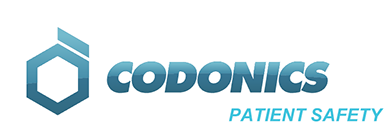
RFID use is expanding in healthcare. How do you see it improving patient safety and clinician efficiency?
Aileen:
RAIN RFID usage is already providing significant value in improving patient safety and clinician efficiency. Early adoption use-cases for RAIN RFID include:
- Tracking day-patients’ clinical journeys to ensure they receive all the required elements of their treatment plan, which also helps to streamline their time spent at a clinic.
- Ensuring there’s a full inventory of instruments in operating theatres prior to the commencement of a surgical procedure to avoid unnecessary delays once surgery is underway.
- Matching the right dose of the right drug with the right patient.
- Preventing diversion of drugs thereby protecting the safety of the general public by ensuring no counterfeit drugs inadvertently end up in the supply chain.
- Enabling automated replenishment of drug inventories, avoiding unnecessary treatment delays.
These applications perfectly showcase RAIN RFID’s capabilities to improve patient outcomes, as well as drive efficiencies across the healthcare value chain.
What are the current challenges in the adoption of RFID in healthcare?
Aileen:
The introduction of any new technology is a change management exercise, and we all know that change management has inherent challenges! Many of us humans are resistant to change, and in clinical environments there’s justifiably a high level of risk aversion.
Structurally, healthcare is a highly fragmented sector with separate disciplines, and implementing change across these silos is a massive undertaking. This fragmentation also results in a complex technical environment, making it more difficult to share data with no agreed common data model. The healthcare market is also highly regulated, with different regulations in different geographies. Frequently, this impedes innovation timelines and makes it difficult to scale solutions across borders.
In addition to these macro level challenges, of course there are also some technical challenges which we are working hard to resolve within the RAIN Alliance. Efficiently tagging different materials and form factors is just one example, which has also been identified to be a headliner for our recently launched 10th Anniversary Innovation Challenge.
Where do you see the future of RFID in healthcare?
Aileen:
The future of RAIN RFID in healthcare is bright. We have seen the successes achieved by early adopters, with these proof points of the technology’s value set to enable rapid deployment worldwide. The members of the RAIN Alliance are keenly aware of the opportunity in the healthcare market and are focused on ensuring we have the technical elements and know-how to deploy solutions at scale to reinforce patient safety and clinical efficiency.
The RAIN Alliance is a consortium of companies that together want to create a smarter and more sustainable world. We are achieving this by using RAIN RFID technology to connect trillions of everyday items across their entire lifecycle, simply and inexpensively. My role as President and CEO involves creating an environment in which our members can work collaboratively to foster adoption of RAIN RFID across a wide range of different industry verticals including healthcare, pharmaceuticals, retail, automotive and smart manufacturing.
